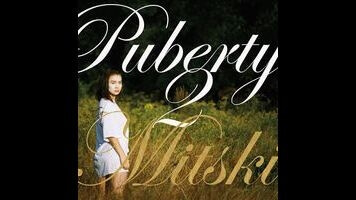Adulthood is such sweet sorrow on Mitski’s powerful Puberty 2

On her last album, 2014’s excellent Bury Me At Makeout Creek, Mitski Miyawaki (she drops the last name on stage) perfectly captured the messiness of late adolescence, that chaotic period when suddenly you can do whatever you want, and make some bad choices as a result. The title of her follow-up, Puberty 2, suggests a new but equally painful period of growth, one where the burdens of adulthood suddenly become more than an abstract concept, and wandering home drunk at 3 a.m. is replaced by getting up early to go to work.
Going to work comes up several times in the pointed lyrics of this album, as does the desire to numb one’s emotions. (“Fireworks” in particular is set to replace Radiohead’s “Fitter Happier” as the emotional detachment anthem of the 21st century.) “Happiness fucks you,” Mitski says in a press release announcing the album, and the anxiety of waiting for the other shoe to drop is reflected in the jittery drum machines that recur throughout. She’s not dead yet, though, and her instrumentation brings urgency and emotional depth to songs like opener “Happy,” where that nervous drum machine temporarily gives way to blasts of saxophone and a rousing chorus in the aftermath of a hookup, only to return after she surveys her messy apartment, alone, and disappointment sets in. (Speaking of urgency, anyone who’s ever suffered an intense bout of anxiety will recognize that feeling in “My Body’s Made Of Crushed Little Stars.”)

 Keep scrolling for more great stories from A.V. Club.
Keep scrolling for more great stories from A.V. Club.